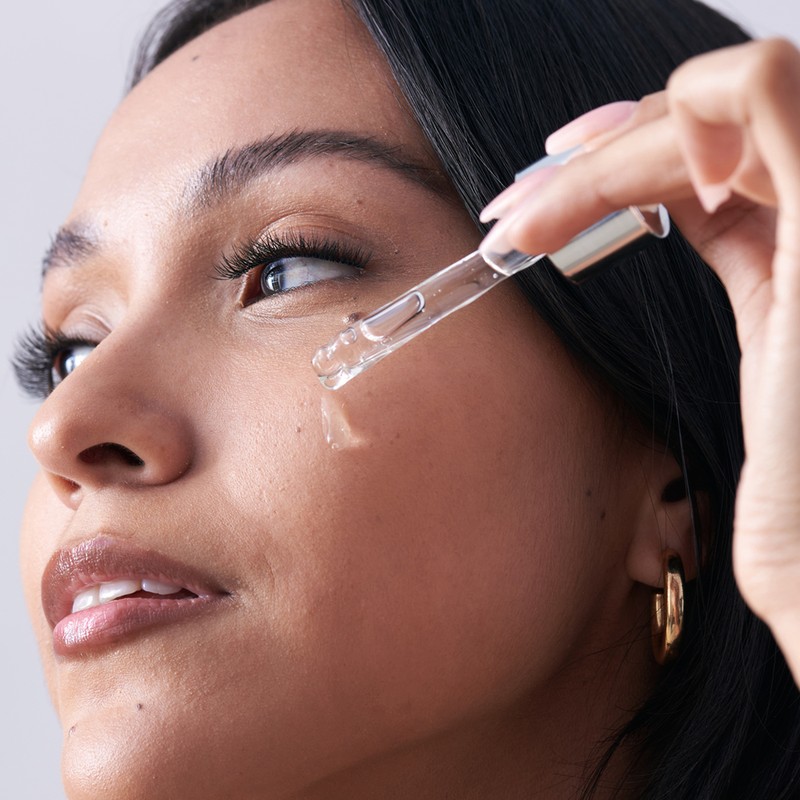What You Need To Know Before Using Retinol
Understand Its Key Benefits
“Though we have all heard of retinol, you still need to know how it works to make sure it’s right for you. Retinol is one form of vitamin A (the most well known), but all forms are considered the gold standard of anti-ageing. Highly regarded by dermatologists and skin therapists alike, it is second to none when it comes to improving signs of photo-ageing. Vitamin A can stimulate cellular turnover in the skin, pushing fresh skin cells to the surface for a smoother, youthful-looking complexion. This also helps to clear pores for blemish-free skin.” – Daniel Isaacs, skin expert & director of research at Medik8
Know When To Apply It
“Retinol should ideally be used at night only, after cleansing. As it’s photosensitive, it can make the skin even more susceptible to damage from the sun, so a regular sunscreen – ideally SPF 30 with broad-spectrum cover – is essential at all times, especially if you’re outside a lot. It should contain both UVA and UVB protection. This is also why winter is a good time to start using it, because you’re out and about less.” – Dr Anjali Mahto, consultant dermatologist & author of The Skincare Bible
Use One Twice A Week
“Everyone should start slowly when incorporating a retinol into their routine. Try using one twice a week to begin with, gradually building up to daily use. Serums are a great way to incorporate retinol as they are lightweight and can be easily layered up – they just require a hydrating moisturiser on top. Don’t start using too many new things at one time – for example, multiple actives in one go. Stick to a basic routine where you cleanse, moisturise, use SPF and retinol is your only key active.” – Dr Emma Wedgeworth, consultant dermatologist for La Roche-Posay
Begin In Your Mid 20s Or Early 30s
“You don’t need to rush into using retinol, but if you’re concerned about skin ageing, or you want to use it as a preventative treatment, a good time to start is your mid to late 20s. From the age of 25, your collagen levels start to deplete, it’s an ideal time to start on retinol. Having said that, your early 30s are an equally sensible time, and some will find that a better period to transition, especially if their skin is prone to high levels of sensitivity.” –Anjali
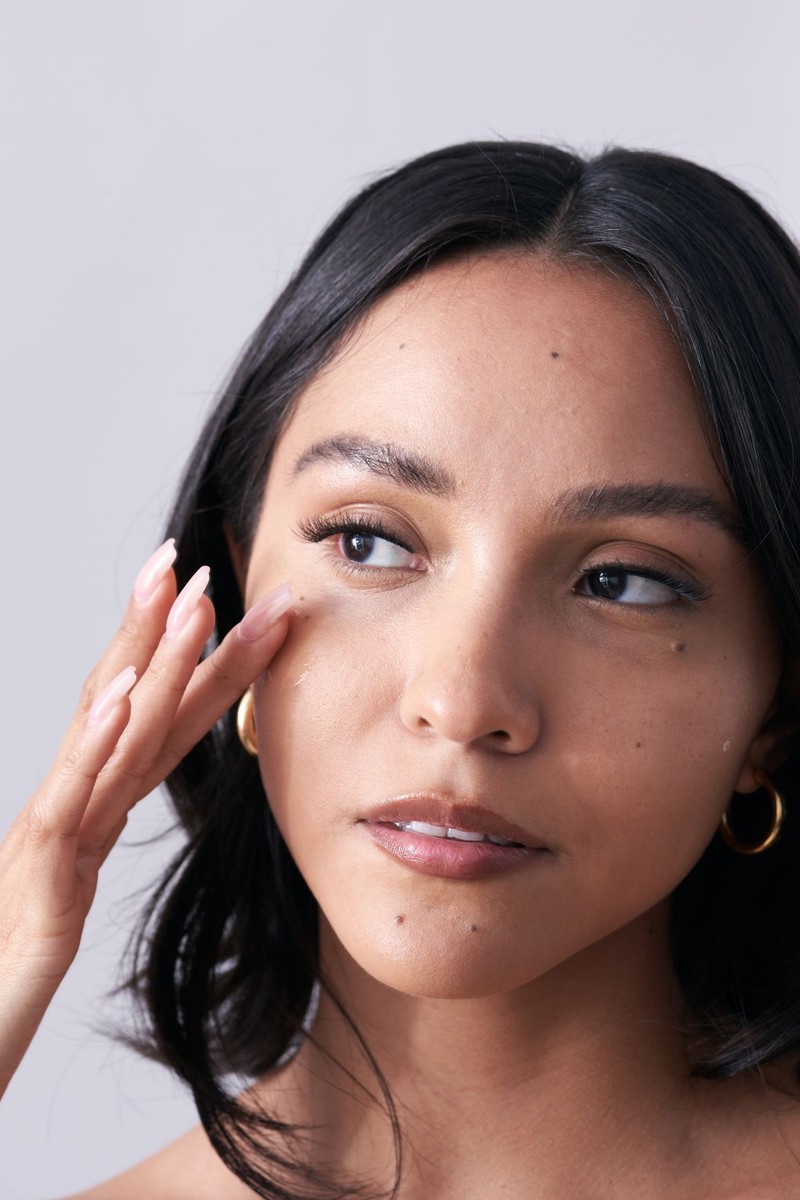
Get The Dosage Right
“If you’re new to retinol, a 0.1% strength is a good place to start. It’s a nice balance between efficacy and tolerance, as well as being gentle enough for sensitive skin. Plus, it’s still strong enough to have a visible effect. Use just a pea-sized amount all over the face and always avoid the eye area.” – Emma
Watch Out For Side Effects
“When you first start using vitamin A, it can cause skin cells to renew themselves too quickly, meaning your skin will struggle to catch up. This can lead to an impaired skin barrier, which is what causes visible peeling and irritation. It’s worth noting, however, that eventually your skin will adapt to the new cell renewal rate and the peeling will subside – your skin is just in an adjustment period called ‘retinisation’. Usually, this lasts around a month. Try to persevere for up to eight weeks – if it becomes too much, reduce your application. Having said all this, excessive stinging or seriously aggressive redness may indicate a general sensitivity to vitamin A. In this instance, stop using the product altogether.” – Daniel
Take An Occasional Break
“Once you start using a retinol, you may find your skin becomes dry, tight or itchy. This is a sign your skin is renewing, but if it becomes really uncomfortable, stop for a few days. There is no harm in stopping – it’s a marathon, not a sprint. You can then slowly build up your usage again and see how you go. Use plenty of hydrating creams on top – or try what I call a ‘retinol sandwich’, which is where you use a cream, layer a thin retinol on and then apply another moisturiser on top of that for extra protection.” – Emma
Avoid Retinol In These Situations
“If you’re pregnant or suffering with active rosacea or eczema, I’d advise against using any retinol-based products. The reason being is it can contribute to high levels of vitamin A in the body, which is something you want to avoid if you can when pregnant. As for eczema and rosacea, you simply don’t want to aggravate these conditions further.” – Emma
Check The Ingredients List
“People often think all retinol products are created equal, but they’re not. It’s worth looking for ‘retinol’ on the ingredients list and starting with the weakest strength possible. Weaker forms of vitamin A do exist, including retinyl palmitate and retinyl acetate. But both are less likely to have the same benefits, so make sure you always check your ingredients list. The gold standard vitamin A is tretinoin which is a prescription-only product and is far stronger.” – Anjali
Ignore The Common Myths
“There are so many myths surrounding retinol, but there are three that really need debunking. First, retinol does not thin the skin. In fact, because retinol stimulates the collagen-producing cells in the dermis, it helps to thicken the skin, the process just takes time. Second, people often say retinol is only for older people – wrong. Vitamin A is a great treatment for acne, which is an issue any age group can struggle with. We forget that collagen production stops quite early, so using a retinol from our mid to late 20s can keep our ‘collagen bank’ topped up and slow down the ageing process. Finally, if you have sensitives, it doesn’t mean you can’t use retinol. You just need to choose the right formulation and start slowly. I recommend using it alongside niacinamide. It’s a great ingredient to cushion the harsh effects of retinol as it boosts the skin barrier and promotes the production of natural ceramides within our skin.” – Emma
Finally, Be Patient
“It can take at least 12 weeks to see the effects of a retinol treatment, so patience is key. Chopping and changing too frequently is what causes irritation and damage, so stick with it and you’ll reap the benefits.” – Anjali
Visit Medik8.com and La-Roche Posay.co.uk. Read The Skincare Bible by Dr Anjali Mahto.
SHOP OUR RETINOL EDIT
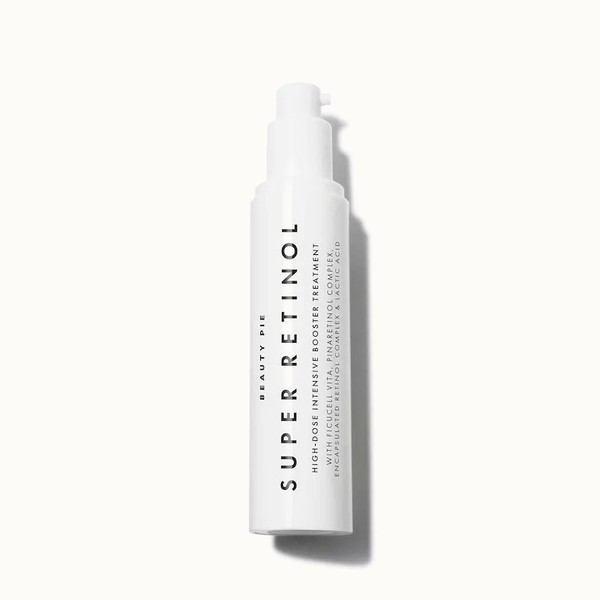
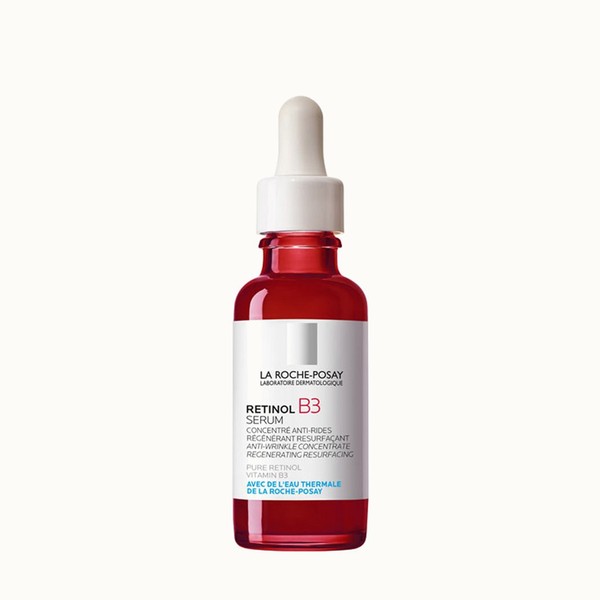
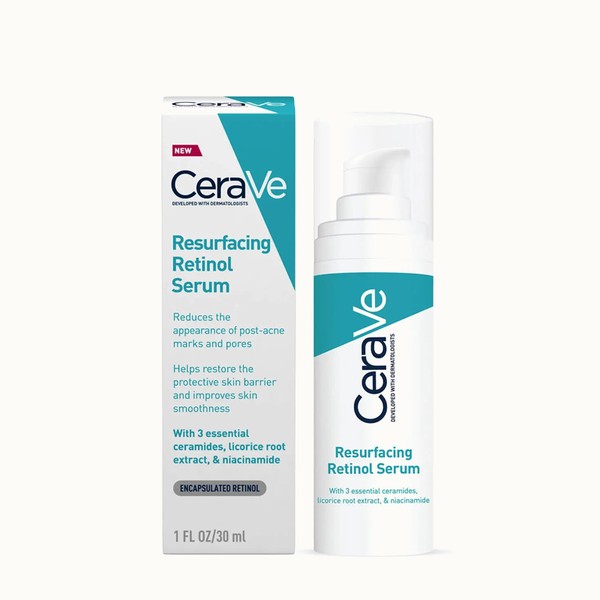
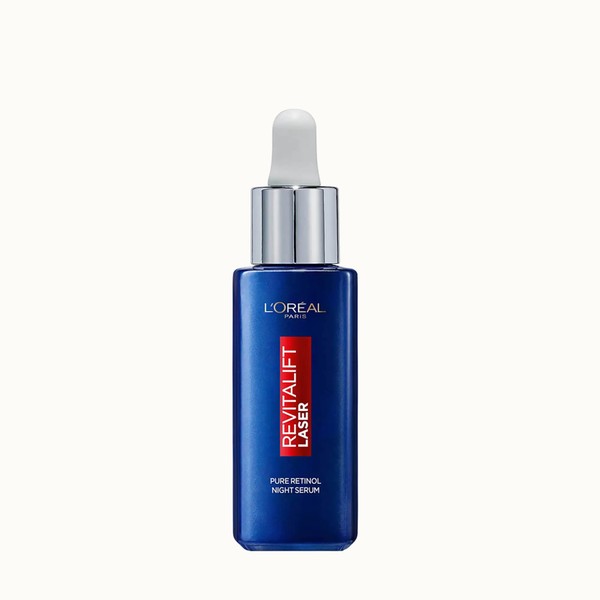
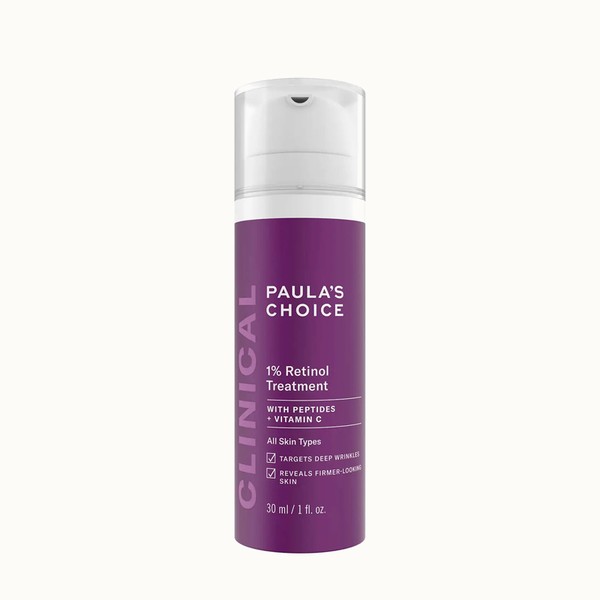
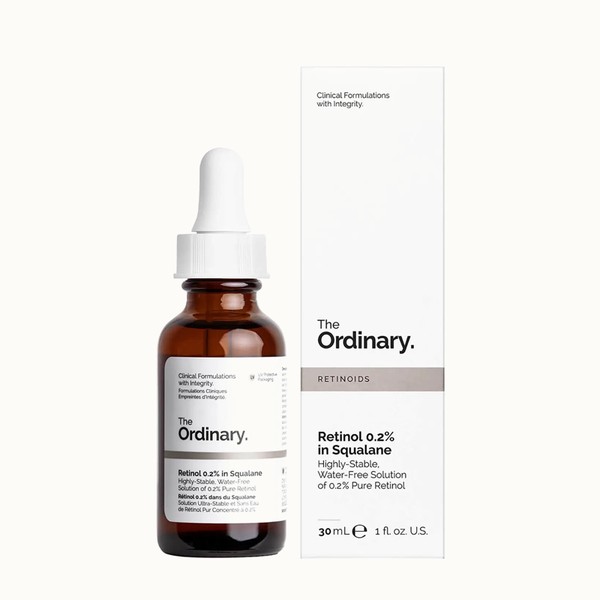
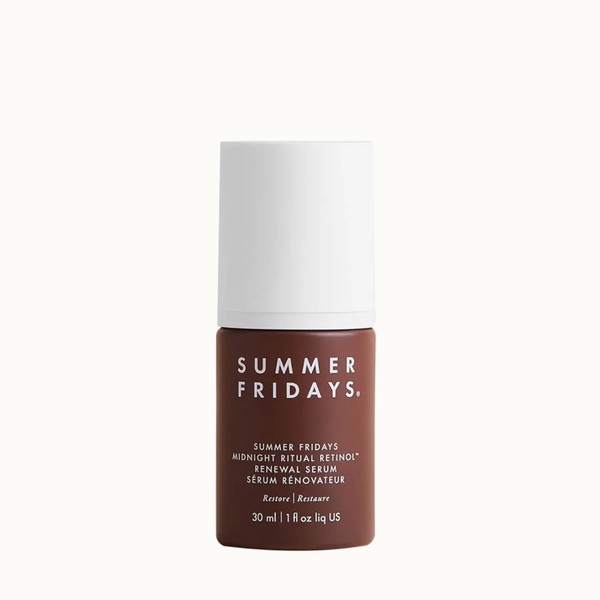
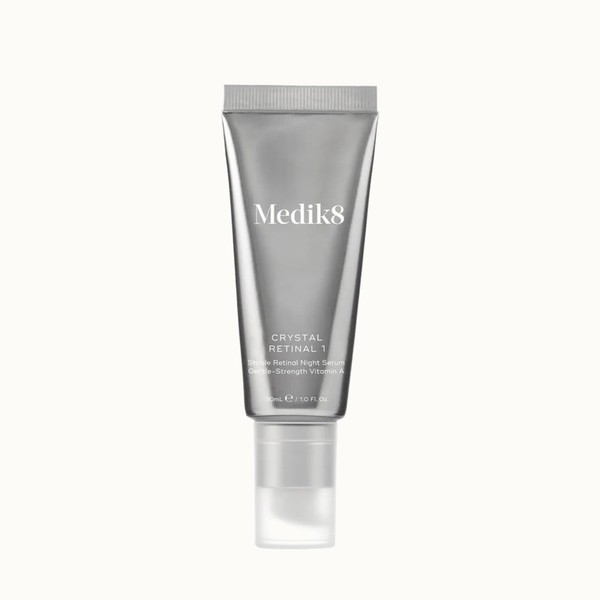
DISCLAIMER: We endeavour to always credit the correct original source of every image we use. If you think a credit may be incorrect, please contact us at info@sheerluxe.com.
